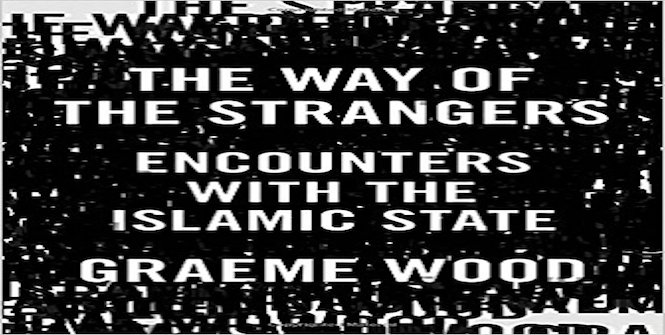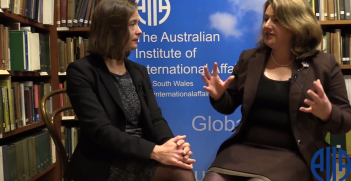Reading Room: Encounters with the Islamic State

The resurgence of militant Islam underway in the Middle East reached a crescendo when Islamic State took Aleppo and Mosul in 2014. Numerically minuscule and militarily primitive but technologically modern, Islamic State (IS) caught the world’s most heavily armed states unawares. It has since tied experts up in knots trying to explain its rise and finding ways to deal with it. Some have proved less knowledgeable than others.
An Arabic-speaking Australian academic at Yale, Graeme Wood in The Way of the Strangers: Encounters with the Islamic State argues that those who dismissed IS as just the latest aggregation of disaffected Sunni thugs were missing its religious significance. When Abu Bakr al-Baghdadi declared a caliphate in Mosul, it became the duty of all observant Muslims to obey him as a successor to the prophet Muhammad, even though only a minority of them share IS’ literal interpretation of Islamic writings of 1400 years ago.
IS derives from the small, persecuted group of early followers of the prophet who succeeded in dominating their seventh century world and it claims exclusive access to his revealed truth. According to this, a Muslim who meets all the criteria—being of Mohammed’s Qurayash tribe, physically intact and able to govern justly—must agree to become caliph and must be followed by all Muslims. He must implement shariah law in a declared territory and must wage jihad.
Wood interviews a wide array of IS adherents including Australians, Americans and Egyptians. Some of them try to convert him; several disagree with him, each other and al-Baghdadi. But all understand that whether IS succeeds under his caliphate or not, its purpose is to fulfil the prophecy and vanquish the enemies of Islam, including Muslims.
In a battle of World War III proportions called the Great Slaughter, the Muslims who remain will fight everyone else and disbelievers will be annihilated. There will be drought, starvation and chaos until the end of time when even Muslims will die in a horrendous wind. Then the sun will rise in the West and only the faithful will join Allah. The resonances with Christian fundamentalism, climate change and nuclear Armageddon are disturbing. Adherent Muslims, moreover, expect and welcome all this.
The more the West attacks with military force, the more IS continues in protean fashion to regroup and inspire followers elsewhere, as it has done in West Africa and is doing in Southeast Asia. No wonder Islamist terrorism is seen by some as the new communism: “Any place with a history of unrest is a potential niche for the caliphate…wherever there is grievance, savagery can be sown…used and exploited,” Graeme Wood writes.
Only one of Wood’s informants is a woman: a British Bangladeshi Muslim who went to Syria, fully veiled, with her American Muslim-convert husband but eventually fled to the US with their four sons and gave up jihad and wifely obedience. Wood doesn’t interview prominent Muslim women in several countries who demand reform, defying the caliphate’s medieval agenda and the Koranic statement that “men are in charge over women”. It is the one shortcoming of this enlightening book.
Graeme Wood, The Way of the Strangers: Encounters with the Islamic State, Allen Lane, 2017
Dr Alison Broinowski FAIIA is a former Australian diplomat and fellow of the Australian Institute of International Affairs. She has written and edited 14 books about Australia and the world.





